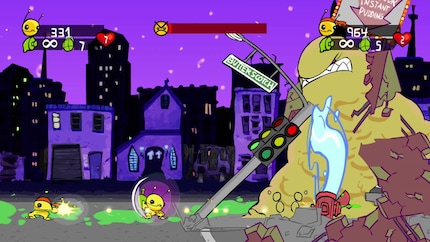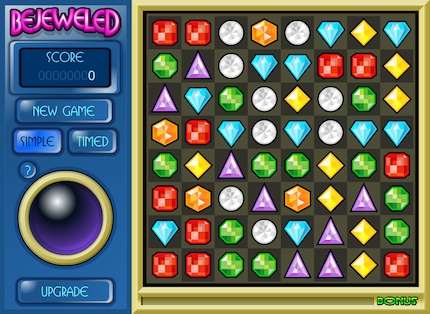
Product test
"Dreams" is much more than a level editor, but it doesn't replace game engines
by Philipp Rüegg
Flash has helped shape the internet like hardly any other software. Hated for its sluggishness and security vulnerabilities, celebrated for its versatility and accessibility. Flash has given us a wealth of content. First and foremost games.
Who hasn't been there? Playing a round of "Bejeweled", "N+" or "Alien Hominid" in a browser window while working. Free, entertaining and accessible, they are still perfect for a game in between. In 2020, Adobe will discontinue official support for the software. The legacy will (hopefully) remain with us.
The first version of Flash was released in January 1996. Back then it was still under the Macromedia umbrella, before Adobe took over the company in 2005. Flash is software that allows you to create multimedia content relatively easily - and for free. Something that met with great interest in the 90s and the early days of the Internet. Thanks to browser plug-ins, the software could be run on practically any system. Over time, Flash almost mutated into a dirty word, not least because of annoying pop-up adverts. Nevertheless, we owe the software an immeasurable wealth of ingenious, crazy, trashy, but almost always worthwhile games.

Official support ends at the end of the year. However, browsers such as Chrome and Safari have long since restricted compatibility to such an extent that hardly anyone still uses the software. The end has been in sight for years. The first nail in the coffin was probably hammered in by Apple in 2010. Steve Jobs announced at the time that neither the iPhone, iPod Touch nor iPad would support Flash. The move was derisively ridiculed by Android users in particular, as the web was still full of content that relied on Flash. The reason for Apple's decision was due to the lack of performance, stability, openness - no, Steve wasn't winking - and especially security. Flash and Adobe regularly landed in the headlines because of gaping security holes and privacy concerns.

In 2016, Chrome followed suit and finally put an end to Flash. Thanks to HTML5 and WebGL, there are now much more open and easier ways to create videos and games.
But what will happen to all the existing Flash games if nobody uses Flash anymore? Browser game sites such as Kongregate have been converting popular titles to HTML5 for some time. However, this does not include the millions of creations scattered across the web. BlueMaxima's Flashpoint has dedicated itself to this endeavour. A non-profit project that has already saved almost 40,000 games and 2,500 animations from nirvana. But even so, many works will soon disappear forever. That's why we are also making our modest article to honour Flash. In our weekly Let's Play, we play a few of the best Flash games of the last 26 years.
We usually stream on Wednesdays on Youtube. You can also check out our Discord channel.
This is how we stream:
As a child, I wasn't allowed to have any consoles. It was only with the arrival of the family's 486 PC that the magical world of gaming opened up to me. Today, I'm overcompensating accordingly. Only a lack of time and money prevents me from trying out every game there is and decorating my shelf with rare retro consoles.